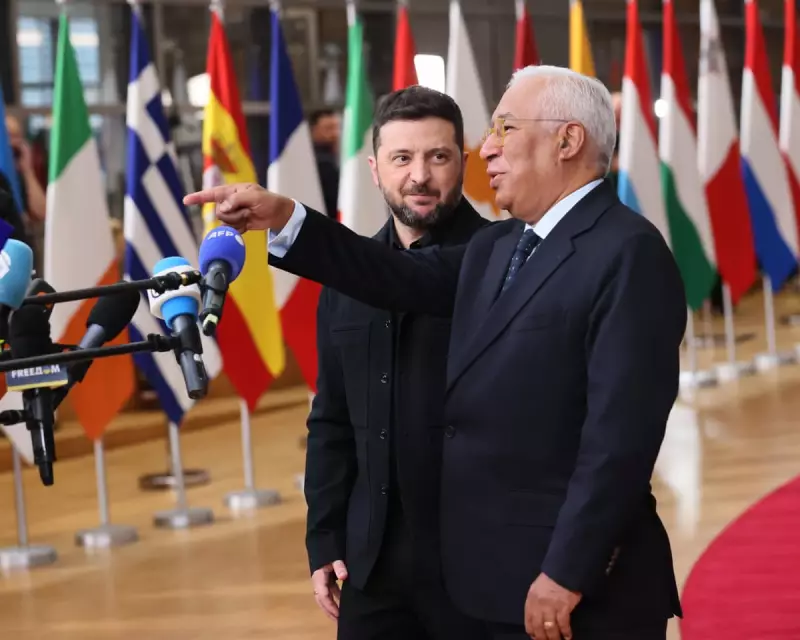
In a landmark decision that signals Europe's hardening stance against Moscow, EU leaders have approved a groundbreaking plan to channel billions from frozen Russian assets directly to Ukraine's war effort.
Unprecedented Financial Move
The European Council has formally endorsed a scheme to provide Ukraine with approximately £2.2 billion (€2.5 billion) in loans, funded entirely by profits generated from Russian state assets frozen across European financial institutions. This represents one of the most significant financial countermeasures taken since Russia's full-scale invasion began.
Zelenskiy's Urgent Warning
Ukrainian President Volodymyr Zelenskiy addressed European leaders via video link, delivering a sobering assessment of the conflict's escalation. "The situation on the front lines has significantly worsened," Zelenskiy stated, highlighting intensified Russian assaults in multiple regions.
His warning came as European Council President Charles Michel announced the immediate processing of the first loan tranche, declaring "there can be no 'fatigue' when it comes to supporting Ukraine" in the face of Russian aggression.
Broader Sanctions Strategy
The asset seizure forms part of a comprehensive new sanctions package targeting:
- Russian energy exports and infrastructure
- Military supply chains circumventing existing restrictions
- Financial networks supporting Moscow's war economy
European Commission President Ursula von der Leyen emphasised that these measures aim to "systematically degrade Russia's military-industrial complex" while bolstering Ukraine's defensive capabilities.
International Response and Implications
The decision marks a significant escalation in Western economic pressure on Moscow, setting a precedent for using seized state assets in conflict financing. Diplomatic sources indicate the move has prompted urgent discussions within the Kremlin about potential countermeasures.
As the conflict enters a critical phase, this financial lifeline could prove decisive in Ukraine's ability to withstand renewed Russian offensives while planning for future counteroperations.





